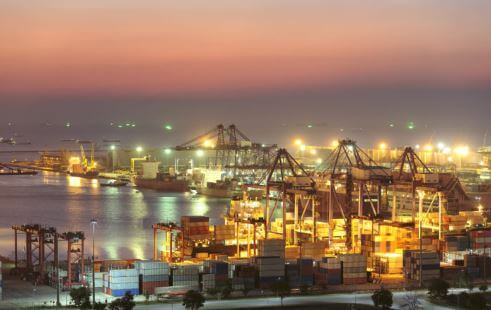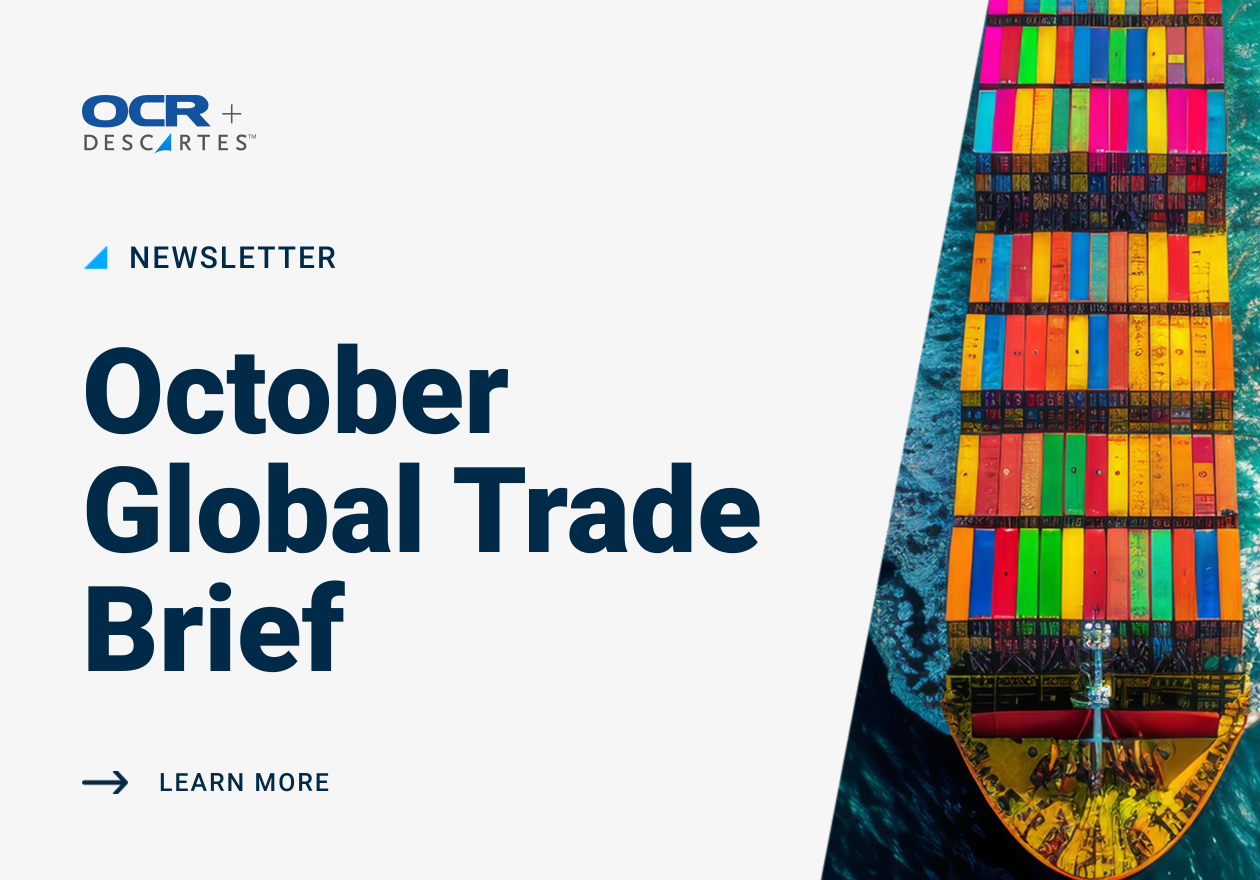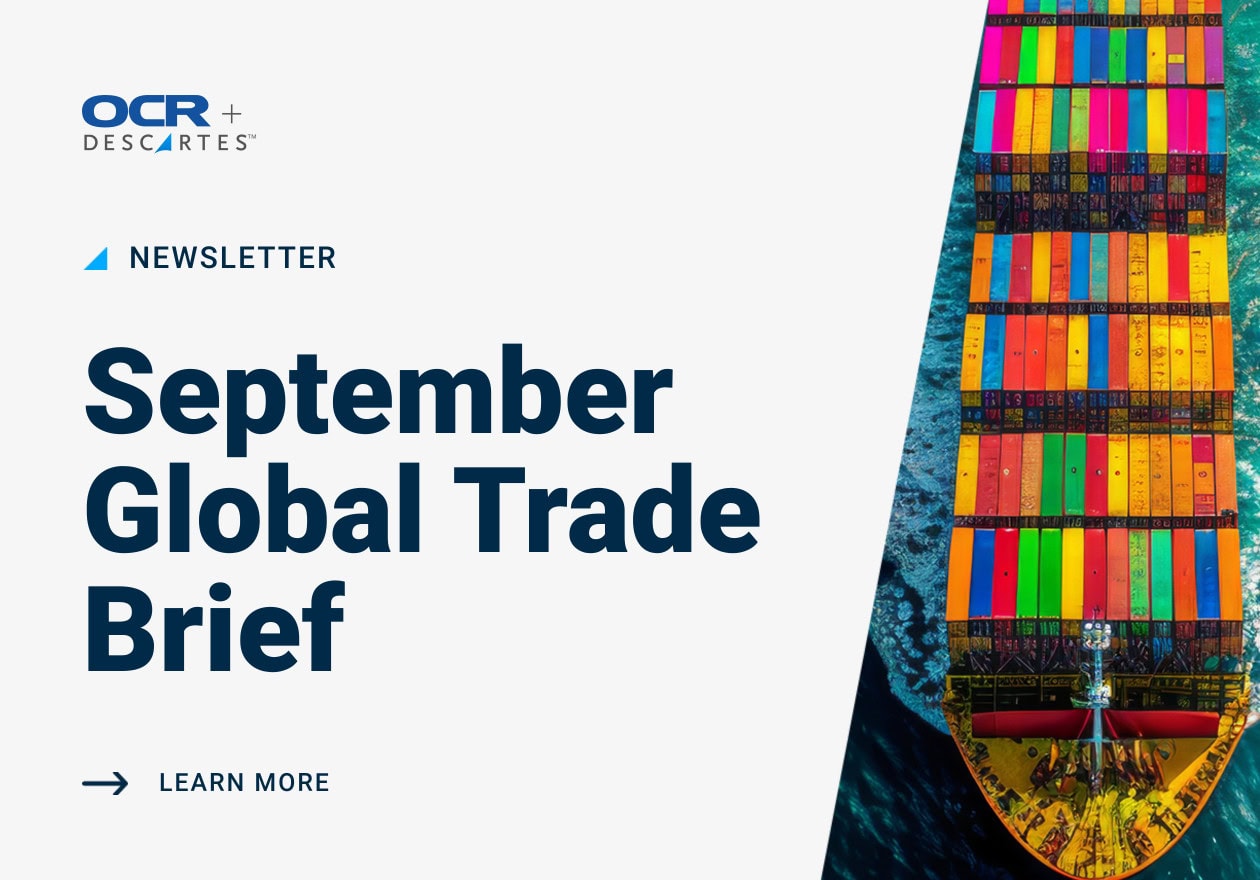Agreement highlights include:
- Creating a more level playing field for American workers, including improved rules of origin for automobiles, trucks, other products, and disciplines on currency manipulation.
- Benefiting American farmers, ranchers, and agribusinesses by modernizing and strengthening food and agriculture trade in North America.
- Supporting a 21st Century economy through new protections for U.S. intellectual property, and ensuring opportunities for trade in U.S. services.
- New chapters covering Digital Trade, Anticorruption, and Good Regulatory Practices, as well as a chapter devoted to ensuring that Small and Medium Sized Enterprises benefit from the Agreement.
While the United States, Mexico, and Canada have concluded a new, rebalanced agreement, NAFTA currently remains in effect. The USMCA can come into effect following the completion of TPA procedures, including a Congressional vote on an implementing bill.
MODERNIZED DRAWBACK FINAL RULE
Effective December 17, 2018, U.S. Customs and Border Protection (CBP) adopts as final, with changes, proposed amendments to the CBP regulations implementing changes to the drawback regulations, as directed by the Trade Facilitation and Trade Enforcement Act of 2015 (TFTEA). These regulations establish new processes for drawback pursuant to TFTEA, which liberalize the merchandise substitution standard, simplify recordkeeping requirements, extend and standardize timelines for filing drawback claims, and require the electronic filing of drawback claims. This document also provides details with respect to the process required to perfect TFTEA-based claims filed under CBP’s Interim Guidance procedures. Further, this document also finalizes regulations clarifying the prohibition on the filing of a substitution drawback claim for internal revenue excise tax in situations where no excise tax was paid upon the substituted merchandise or where the substituted merchandise is the subject of a different claim for refund or drawback of tax.
NEW U.S. POLICY REGARDING NUCLEAR EXPORTS TO CHINA
On October 11, 2018, the U.S. Department of Energy (DOE) announced “measures to prevent China’s illegal diversion of U.S. civil nuclear technology for military or other unauthorized purposes.” These measures, which took effect immediately, include additional restrictions on U.S.- origin nuclear-related exports to China. The new policy “establishes a clear framework for the disposition” of current requests for Part 810 authorizations concerning transfers to China that are “on hold because of military diversion and proliferation concerns,” according to an October 11 DOE statement.
With respect to Part 810 authorizations, the new policy mandates a presumption of approval for:
- “amendments or extensions for existing authorizations for technology transferred prior to January 1, 2018”;
- “new technology transfers for operational safety contingent on satisfactory technical analysis on applicability to and benefit of operational safety and assessment of the end user”; and
- “mew technology transfers required to support sale of an item that is commercially available.”
With respect to NRC export licenses for equipment and components, the new policy mandates a presumption of approval for:
- support to “continued projects such as construction of AP-1000, CAP-1000,” reactors and “major identical components supporting CAP-1400 reactors”; and
- “pressurized light water SMR or non-light water advanced reactors with no technology transfer above and beyond installation and operation.”
With respect to NRC export licenses for nuclear material, the new policy mandates a presumption of approval “for new license applications and amendments or extensions to existing authorizations:”
The new policy targets transfers involving the state-owned China General Nuclear Power Corporation (CGN). Specifically, with respect to CGN and its “subsidiaries or related entities.”
INTERNATIONAL TRADEMARK CLASSIFICATION CHANGES
The United States Patent and Trademark Office (USPTO) issues a final rule to incorporate classification changes adopted by the Nice Agreement Concerning the International Classification of Goods and Services for the Purposes of the Registration of Marks (Nice Agreement). These changes are effective January 1, 2019, and are listed in the International Classification of Goods and Services for the Purposes of the Registration of Marks (11th ed., ver. 2019), which is published by the World Intellectual Property Organization (WIPO).
USITC MAKES DETERMINATIONS CONCERNING LARGE DIAMETER WELDED PIPE FROM CHINA
The United States International Trade Commission (USITC) today announced its injury determinations in its antidumping and countervailing duty investigations concerning large diameter welded (LDW) pipe from China and India that the U.S. Department of Commerce (Commerce) has determined are subsidized and sold in the United States at less than fair value.
The USITC’s affirmative determinations, Commerce will issue antidumping duty orders on imports of LDW carbon and alloy steel line pipe from China and India and a countervailing duty order on imports of LDW carbon and alloy steel line pipe from India, and antidumping and countervailing duty orders on imports of LDW carbon and alloy steel structural pipe from China.
The Commission’s public report Large Diameter Welded Pipe from China and India (Inv. Nos. 701-TA-593-594 and 731-TA-1402 and 1404 (Final), USITC Publication 4859, December 2018) will contain the views of the Commission and information developed during the investigations.
The report will be available by January 14, 2019.
ZOLTEK COMPANIES SETTLEMENT WITH OFAC
The U.S. Department of the Treasury’s Office of Foreign Assets Control (OFAC) announced a $7,772,102 settlement with Zoltek Companies, Inc. (“Zoltek”) and its subsidiaries worldwide. Zoltek — a holding company headquartered in Bridgeton, Missouri, and the owner of Zoltek Corporation (“Zoltek U.S.”), located in the United States, and Zoltek Vegyipari ZRT (“Zoltek ZRT”), located in Hungary — has agreed to settle its potential civil liability for 26 apparent violations of the Belarus Sanctions Regulations, 31 C.F.R. part 548 (BSR). The apparent violations involve Zoltek U.S. approving 26 purchases of acrylonitrile — a chemical used in the production of carbon fiber — between Zoltek ZRT and J.S.C. Naftan (“Naftan”), a Belarusian entity OFAC designated on August 11, 2011 pursuant to Executive Order 13405 of June 16, 2006, “Blocking Property of Certain Persons Undermining Democratic Processes or Institutions in Belarus,” and identified on OFAC’s List of Specially Designated Nationals and Blocked Persons (the “SDN List”), in apparent violation of § 548.201 of the BSR. OFAC determined that Zoltek and Zoltek U.S. voluntarily self-disclosed the apparent violations and that the apparent violations that occurred prior to February 2015 constitute a non-egregious case, and that the apparent violations that occurred after February 2015 constitute an egregious case.
SOCIÉTÉ GÉNÉRALE S.A. SETTLEMENT WITH OFAC
The U.S. Department of the Treasury’s Office of Foreign Assets Control (OFAC) announced a $53,966,916.05 settlement with Société Générale S.A. to settle potential civil liability for apparent violations of U.S. sanctions. The settlement resolves OFAC’s investigation into Société Générale S.A.’s processing of transactions to or through the United States or U.S. financial institutions in a manner that removed, omitted, obscured, or otherwise failed to include references to OFAC-sanctioned parties in the information sent to U.S. financial institutions that were involved in the transactions. Société Générale S.A. processed 1,077 transactions totaling $5,560,452,994.36 in apparent violation of the Cuban Assets Control Regulations, 31 C.F.R. part 515; the Iranian Transactions and Sanctions Regulations, 31 C.F.R. part 560; and the Sudanese Sanctions Regulations, 31 C.F.R. part 538. This settlement with OFAC is part of a global settlement among Société Générale S.A., OFAC, the Board of Governors of the Federal Reserve System, the U.S. Department of Justice, the New York County District Attorney’s Office, the U.S. Attorney for the Southern District of New York, and the New York State Department of Financial Services.



